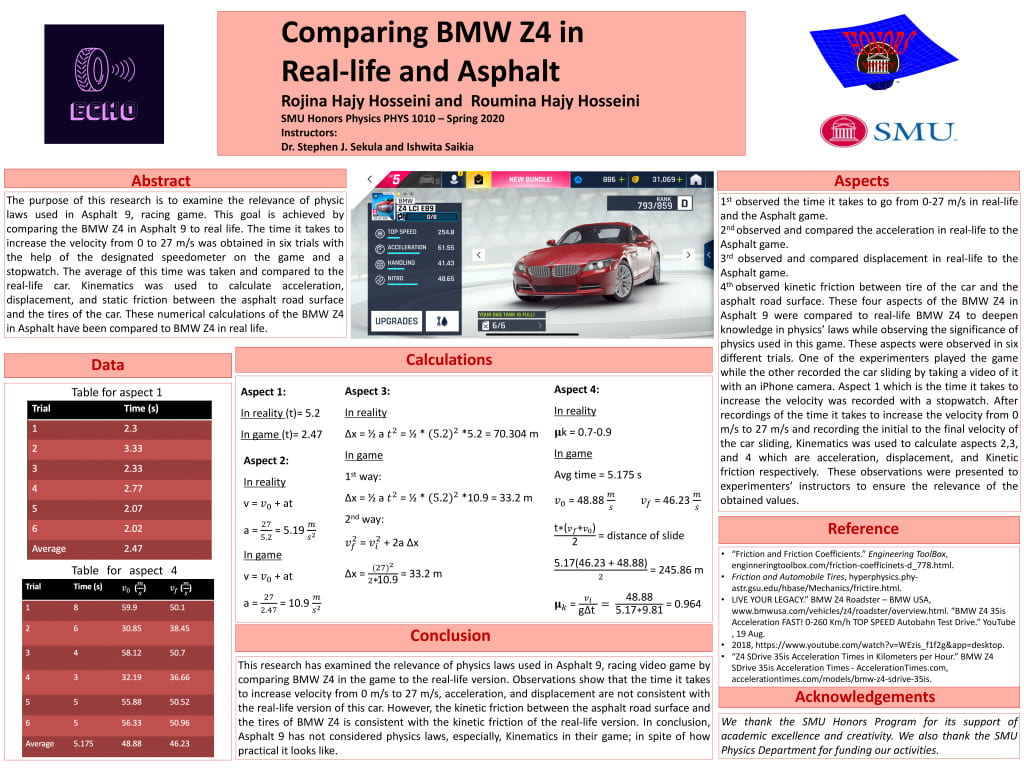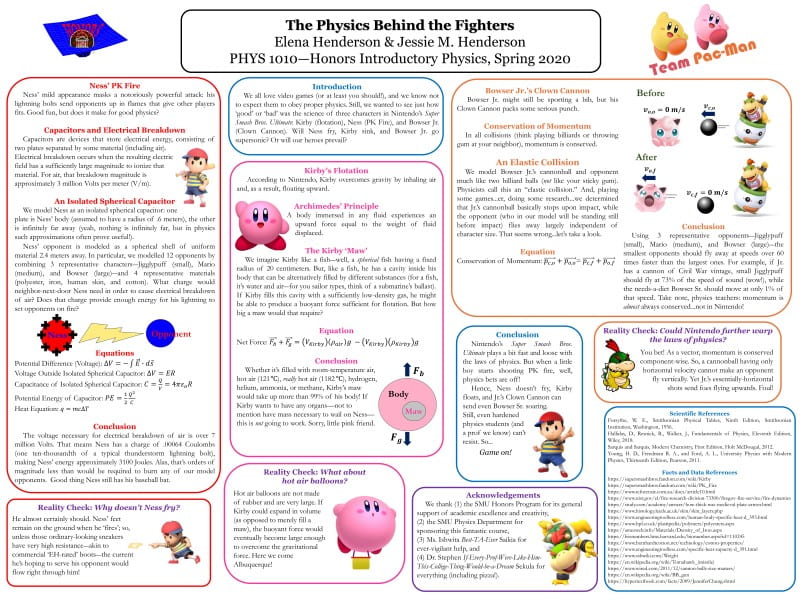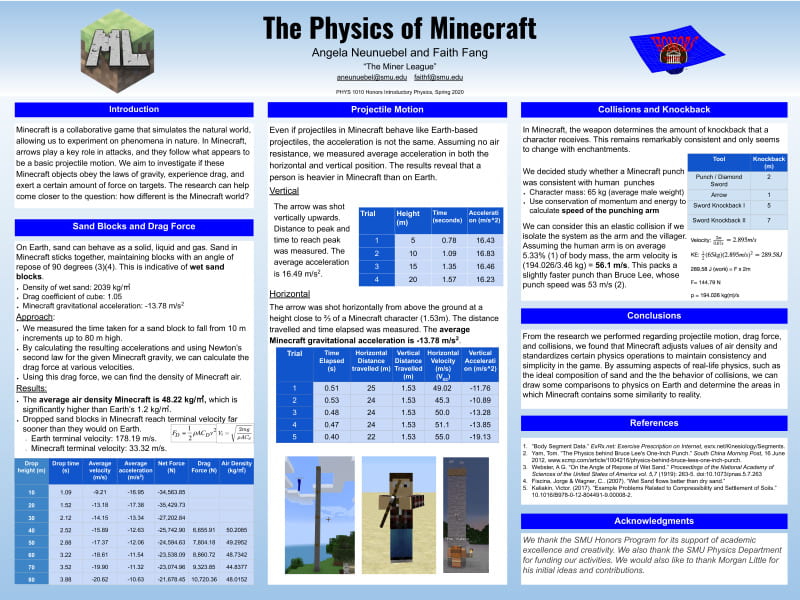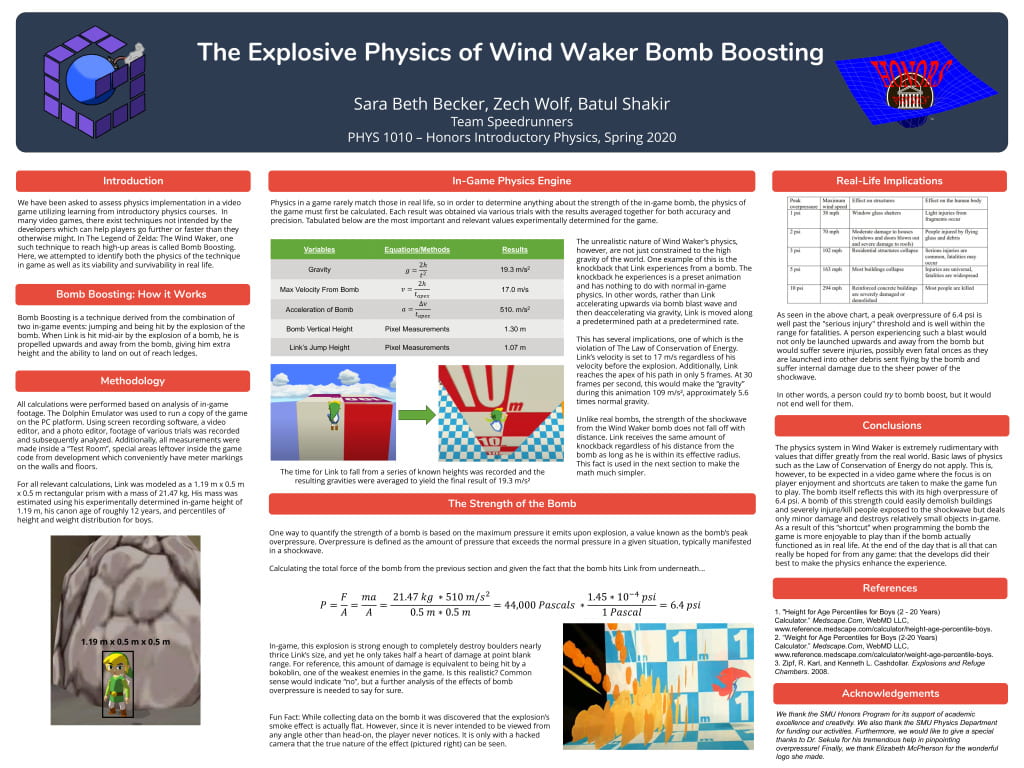Contents
- Identify the framework or scenario for their investigation of the prompt;
- Identify aspects within the framework that need to be investigated.
- Use introductory physics concepts to explore the aspects and arrive at conclusions about them.
Honors Introductory Physics students spend about 13 weeks developing their framework and investigations. This culminates in the creation of a poster summarizing their investigations and findings, as well as a presentation of their work.
Students would normally present their work in the Dallas Hall Rotunda on “Honors Physics Poster Night,” the last night of the class (May 4, 2020). However, this is not possible in the age of COVID-19. Instead, enjoy this digital poster night, complete with the posters and “elevator pitch” videos from the students explaining their projects, methods, and findings!
The Physics of Video Games and Gaming
Spring 2020 invited students to investigate the physics of video games or gaming. This was teased in a trailer released just before the beginning of the course.
Spring 2020 and COVID-19
Due to the outbreak of COVID-19 in the United States around the beginning of March, SMU closed the campus to in-person instruction after Spring Break. Honors Physics students rallied to the digital teaching era, joining me in Zoom-based classroom environments for interactive activities. Together, we explored coding (introduction to Python programming and the mathematics of fractal geometry). We also had an evening broadcast from my home kitchen exploring “Physics in the Kitchen,” where we made food coloring-based non-explosive fireworks, measured the speed of light with a chocolate bar and a microwave oven, and mixed up “Oobleck,” a non-Newtonian fluid that is tons of fun. Students kept up the momentum on their Grand Challenge Problem projects, presenting their work in two digital-only “collaboration nights,” producing digital copies of their posters, and recording videos presenting their work. I am extremely proud of these students, and I invite you to explore their work and celebrate their intellectual and creative engagement during these difficult times.
Associate Professor Stephen Sekula, lead instructor of PHYS1010 in Spring 2020
Team Photons Go Phast
Gabrielle Gard, Ayden Machajewski, and Hannah Sheard
Team Echo
Rojina Hajy Hosseini and Roumina Hajy Hosseini
Team Pac-Man
Elena Henderson and Jessie Henderson
The Miner League
Faith Fang and Angela Neunuebel
(with special acknowledgement to Morgan Little)




